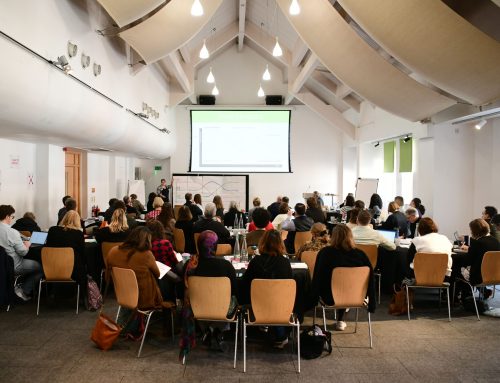A
s universities across the UK embrace their growing civic responsibilities, their role as anchor institutions is being redefined. No longer just centres of learning and research, they are now expected to drive inclusive, place-based change. One promising yet underdeveloped area is the intersection between civic engagement and social ventures—an approach that gains urgency amid a new government, deepening localism, and renewed calls for economic and social renewal.
This blog explores how social venture models can bolster university civic engagement strategies and support the delivery of Civic University Agreements. Drawing on the experience of London Social Ventures (LSV)—an initiative led by Queen Mary University of London and UCL, in partnership with other London universities—we highlight practical examples and advocate for embedding social venturing more deliberately within university strategies. This integration can foster innovation, reduce inequalities, and build long-term community resilience.
Civic delivery in a shifting 2025 landscape
The start of 2025 marks a pivotal moment. With a new government emphasising devolution, local economic renewal, and inclusive innovation, universities are being called upon to act as more than educators or researchers; they are now expected to be active civic partners and delivery agents.
National bodies such as UKRI and Research England are shaping this evolving landscape. The Knowledge Exchange Framework, Place Innovation Missions, and new funding rounds through the Strength in Places Fund are all part of efforts to embed universities more firmly within regional ecosystems. The message is clear: civic value must be demonstrated through structural partnerships, long-term delivery, and co-produced outcomes.
Recent reflections from the Civic University Network reinforce this shift. In Beyond Boroughs, universities are challenged to operate beyond narrow institutional boundaries and lead region-wide civic collaboration. Civic Universities as Powerhouses of Economic and Social Impact highlights the transformative potential when civic ambition is matched with delivery capability. To realise this potential, we need delivery models that are embedded, scalable, and rooted in the communities universities serve.
This is where social ventures can play a powerful role.
Social ventures as civic delivery infrastructure
Social ventures are enterprises designed to address pressing social and environmental challenges through sustainable, mission-driven models. They blend entrepreneurial innovation with a deep commitment to impact, often emerging from and engaging directly with the communities universities aim to serve.
Universities are uniquely positioned to support and scale these ventures. As hubs of knowledge, talent, and applied research, they can act as catalysts, providing expertise, networks, space, funding, and credibility. However, support for social ventures is often marginalised—relegated to student enterprise teams or niche accelerator programmes, disconnected from broader civic strategies and overshadowed by more commercially focused spinouts.
Social ventures offer an underused pathway for universities to apply research and knowledge in real-world settings. While commercialisation efforts often prioritise technology spinouts or high-growth businesses, social ventures mobilise ideas, evidence, and lived experience to address local priorities. Their flexibility allows them to span disciplines—including social sciences, arts, and humanities (SHAPE)—and to partner with public or community organisations in ways traditional commercial approaches cannot.
It is time to reposition this work. Social ventures should be seen as essential delivery infrastructure for the civic university mission. They can:
- Translate research and innovation into real-world interventions
- Enable students and staff to co-create solutions with local partners
- Build economic inclusion through community-led employment and enterprise
- Provide tangible evidence of civic impact for funders and partners
The London Social Ventures approach in Practice
London is seeing growing momentum for the role of social ventures in supporting civic university agendas. Many institutions are exploring how enterprise and innovation can better serve the public good—through student-facing initiatives, local partnerships, and civic-relevant pilot programmes. Yet, despite this activity, social ventures often remain on the periphery of formal delivery mechanisms.
London Social Ventures (LSV) aims to change this. As a pan-London initiative, LSV works with universities to help social ventures move from isolated pilots to structured civic infrastructure. Rather than confining social ventures to enterprise or entrepreneurship teams, LSV supports institutions in connecting these ventures more deliberately with their Civic University Agreements, local partnerships, and regional economic priorities. The goal is to ensure that promising ideas from staff, students, and community partners are not just incubated, but supported to deliver lasting, place-based impact.
London is home to a rich tapestry of networks and organisations dedicated to delivering social value and long-lasting impact in communities facing multiple challenges. LSV is working to bring universities closer to this space through the mechanism of social ventures.
There are already promising examples of this shift. At Queen Mary University of London, the student-led Social Venture Fund (QMSVF) backs early-stage ventures addressing environmental and social issues—such as Carbon Cell, which develops bio-based alternatives to carbon-intensive construction materials. At University of the Arts London, the Creative Shift initiative supports students from underrepresented backgrounds to develop socially engaged creative ventures, including collaborations exploring themes of identity, community, and sustainability through enterprise.
These examples signal an important direction of travel—but the opportunity is far greater. LSV's role is to help institutions move beyond one-off programmes and towards a shared, coordinated ecosystem that enables social ventures to play a sustained role in how universities deliver civic impact.
This work contributes to a broader sector shift: the move from transactional partnerships to connected civic infrastructure. It reflects a systems approach, where social ventures act as a bridge between university capabilities and long-term public outcomes—not just within borough boundaries, but across city-regions.
This is not about promoting a single model, but about creating enabling conditions for social ventures to thrive as a core part of university civic infrastructure. In doing so, we can collectively move from good intentions to grounded delivery—building civic systems that are more inclusive, collaborative, and locally responsive.
Connecting civic ventures with system-wide change
The wider policy landscape offers new momentum for scaling this model. The London Growth Plan, the Levelling Up agenda, and emerging NHS and Greater London Authority (GLA) missions all open the door for social ventures to contribute to regional strategy—and for universities to act as conveners and intermediaries.
However, scaling this work will require more than good examples. It will need institutional alignment, sustainable funding, policy advocacy, and shared infrastructure.
At LSV, our focus is on enabling this system-wide shift by:
- Building capacity: offering social venture founders tailored support, mentorship, and funding navigation
- Fostering collaboration: connecting universities, community groups, and corporates to co-design civic ventures
- Influencing policy: working with funders and government to embed social ventures into long-term regional delivery models
We believe that universities that embed social ventures into their civic DNA will not only deliver stronger local outcomes—they will also be better positioned to respond to national challenges around health, inequality, economic transition, and climate resilience.
Looking ahead
As the civic university movement evolves, the need for infrastructure that can turn intent into impact becomes ever more pressing. Social ventures offer universities a grounded, practical, and scalable route to deliver on their civic commitments, while also unlocking innovation, fostering inclusion, and building stronger communities.
These models offer a powerful tool, not only enhancing the civic impact of universities, but also helping shape a more equitable and sustainable future for the communities they serve.
For more information on London Social Ventures – https://londonsocialventures.com/ and londonsocialventures@qmul.ac.uk
London Social Ventures is embedded in the Queen Mary University of London Civic University Agreement – more details at https://www.qmul.ac.uk/civic
A
s universities across the UK embrace their growing civic responsibilities, their role as anchor institutions is being redefined. No longer just centres of learning and research, they are now expected to drive inclusive, place-based change. One promising yet underdeveloped area is the intersection between civic engagement and social ventures—an approach that gains urgency amid a new government, deepening localism, and renewed calls for economic and social renewal.
This blog explores how social venture models can bolster university civic engagement strategies and support the delivery of Civic University Agreements. Drawing on the experience of London Social Ventures (LSV)—an initiative led by Queen Mary University of London and UCL, in partnership with other London universities—we highlight practical examples and advocate for embedding social venturing more deliberately within university strategies. This integration can foster innovation, reduce inequalities, and build long-term community resilience.
Civic delivery in a shifting 2025 landscape
The start of 2025 marks a pivotal moment. With a new government emphasising devolution, local economic renewal, and inclusive innovation, universities are being called upon to act as more than educators or researchers; they are now expected to be active civic partners and delivery agents.
National bodies such as UKRI and Research England are shaping this evolving landscape. The Knowledge Exchange Framework, Place Innovation Missions, and new funding rounds through the Strength in Places Fund are all part of efforts to embed universities more firmly within regional ecosystems. The message is clear: civic value must be demonstrated through structural partnerships, long-term delivery, and co-produced outcomes.
Recent reflections from the Civic University Network reinforce this shift. In Beyond Boroughs, universities are challenged to operate beyond narrow institutional boundaries and lead region-wide civic collaboration. Civic Universities as Powerhouses of Economic and Social Impact highlights the transformative potential when civic ambition is matched with delivery capability. To realise this potential, we need delivery models that are embedded, scalable, and rooted in the communities universities serve.
This is where social ventures can play a powerful role.
Social ventures as civic delivery infrastructure
Social ventures are enterprises designed to address pressing social and environmental challenges through sustainable, mission-driven models. They blend entrepreneurial innovation with a deep commitment to impact, often emerging from and engaging directly with the communities universities aim to serve.
Universities are uniquely positioned to support and scale these ventures. As hubs of knowledge, talent, and applied research, they can act as catalysts, providing expertise, networks, space, funding, and credibility. However, support for social ventures is often marginalised—relegated to student enterprise teams or niche accelerator programmes, disconnected from broader civic strategies and overshadowed by more commercially focused spinouts.
Social ventures offer an underused pathway for universities to apply research and knowledge in real-world settings. While commercialisation efforts often prioritise technology spinouts or high-growth businesses, social ventures mobilise ideas, evidence, and lived experience to address local priorities. Their flexibility allows them to span disciplines—including social sciences, arts, and humanities (SHAPE)—and to partner with public or community organisations in ways traditional commercial approaches cannot.
It is time to reposition this work. Social ventures should be seen as essential delivery infrastructure for the civic university mission. They can:
- Translate research and innovation into real-world interventions
- Enable students and staff to co-create solutions with local partners
- Build economic inclusion through community-led employment and enterprise
- Provide tangible evidence of civic impact for funders and partners
The London Social Ventures approach in Practice
London is seeing growing momentum for the role of social ventures in supporting civic university agendas. Many institutions are exploring how enterprise and innovation can better serve the public good—through student-facing initiatives, local partnerships, and civic-relevant pilot programmes. Yet, despite this activity, social ventures often remain on the periphery of formal delivery mechanisms.
London Social Ventures (LSV) aims to change this. As a pan-London initiative, LSV works with universities to help social ventures move from isolated pilots to structured civic infrastructure. Rather than confining social ventures to enterprise or entrepreneurship teams, LSV supports institutions in connecting these ventures more deliberately with their Civic University Agreements, local partnerships, and regional economic priorities. The goal is to ensure that promising ideas from staff, students, and community partners are not just incubated, but supported to deliver lasting, place-based impact.
London is home to a rich tapestry of networks and organisations dedicated to delivering social value and long-lasting impact in communities facing multiple challenges. LSV is working to bring universities closer to this space through the mechanism of social ventures.
There are already promising examples of this shift. At Queen Mary University of London, the student-led Social Venture Fund (QMSVF) backs early-stage ventures addressing environmental and social issues—such as Carbon Cell, which develops bio-based alternatives to carbon-intensive construction materials. At University of the Arts London, the Creative Shift initiative supports students from underrepresented backgrounds to develop socially engaged creative ventures, including collaborations exploring themes of identity, community, and sustainability through enterprise.
These examples signal an important direction of travel—but the opportunity is far greater. LSV's role is to help institutions move beyond one-off programmes and towards a shared, coordinated ecosystem that enables social ventures to play a sustained role in how universities deliver civic impact.
This work contributes to a broader sector shift: the move from transactional partnerships to connected civic infrastructure. It reflects a systems approach, where social ventures act as a bridge between university capabilities and long-term public outcomes—not just within borough boundaries, but across city-regions.
This is not about promoting a single model, but about creating enabling conditions for social ventures to thrive as a core part of university civic infrastructure. In doing so, we can collectively move from good intentions to grounded delivery—building civic systems that are more inclusive, collaborative, and locally responsive.
Connecting civic ventures with system-wide change
The wider policy landscape offers new momentum for scaling this model. The London Growth Plan, the Levelling Up agenda, and emerging NHS and Greater London Authority (GLA) missions all open the door for social ventures to contribute to regional strategy—and for universities to act as conveners and intermediaries.
However, scaling this work will require more than good examples. It will need institutional alignment, sustainable funding, policy advocacy, and shared infrastructure.
At LSV, our focus is on enabling this system-wide shift by:
- Building capacity: offering social venture founders tailored support, mentorship, and funding navigation
- Fostering collaboration: connecting universities, community groups, and corporates to co-design civic ventures
- Influencing policy: working with funders and government to embed social ventures into long-term regional delivery models
We believe that universities that embed social ventures into their civic DNA will not only deliver stronger local outcomes—they will also be better positioned to respond to national challenges around health, inequality, economic transition, and climate resilience.
Looking ahead
As the civic university movement evolves, the need for infrastructure that can turn intent into impact becomes ever more pressing. Social ventures offer universities a grounded, practical, and scalable route to deliver on their civic commitments, while also unlocking innovation, fostering inclusion, and building stronger communities.
These models offer a powerful tool, not only enhancing the civic impact of universities, but also helping shape a more equitable and sustainable future for the communities they serve.
For more information on London Social Ventures – https://londonsocialventures.com/ and londonsocialventures@qmul.ac.uk
London Social Ventures is embedded in the Queen Mary University of London Civic University Agreement – more details at https://www.qmul.ac.uk/civic






